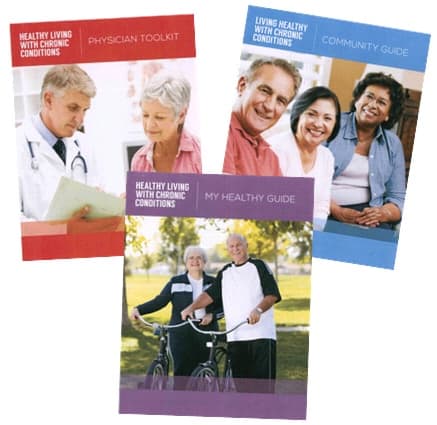Toolkits to Raise Awareness of Prediabetes and Diabetes Prevention

Submission Date: August 2014
Entry Type: Case Study
State/Territory Submitted on the Behalf of: New York
States/Territories Involved: Minnesota, New Mexico, New York
Domain Addressed:Community-Clinical Linkages
Public Health Issue:In New York State, 25-30% of the adult population, or 4.5 million people, are estimated to have prediabetes. Without lifestyle changes to improve their health, 15 – 30% of people with prediabetes will develop type 2 diabetes within five years.
The Diabetes Prevention Program research study showed that making modest behavior changes helped participants lose 5 – 7% of their body weight and reduced the risk of developing type 2 diabetes by 58% in people with prediabetes.
Most people with prediabetes do not know they have it and that there is a program that can prevent or delay the onset of diabetes. Raising awareness of prediabetes risk factors and the National Diabetes Prevention Program’s (National DPP) evidence-based lifestyle change program among people at risk for developing diabetes can promote increased used of the lifestyle change program.
Project Objectives:Disseminate a modifiable toolkit through academic detailing to 8 small to medium practices containing a total of 50 providers and 3 major health systems with aproximately 700 providers to promote the evidence-based lifestyle change program and increase awareness of prediabetes.
Program Action:Working with the P2 Collaborative of Western New York (P2 Collaborative), a non-profit organization dedicated to health improvement, the New York Diabetes Prevention and Control Program (DPCP) created three diabetes prevention awareness toolkits. The toolkits were designed to increase awareness of prediabetes, introduce the evidence-based lifestyle change program, and promote referral to the lifestyle change program. They included information on prediabetes, benefits of diabetes prevention, and how to enroll in the evidence-based lifestyle change program.
In preparation for the toolkit creation, two P2 Collaborative staff members attended a training provided by the National Resource Center for Academic Detailing. Academic detailing is a service that sends trained clinicians, such as pharmacists, nurses or doctors, into physicians’ offices to provide unbiased, non-commercial, non-product-based information on disease prevention and treatment. Existing materials provided by the state diabetes programs from New York, Minnesota, and New Mexico were revised for use in the toolkits. The partners created a base toolkit that was then tailored for three audiences: individuals at risk for prediabetes, community organizations, and healthcare providers. While the content was similar in all toolkits, tone, wording, and culturally acceptable images were adapted to each target audience. A graphic designer formatted the toolkits, and each kit was assigned a unique color.
The P2 Collaborative posted the finalized toolkits on their website (http://www.p2wny.org/materials.html) and distributed them to health systems, healthcare providers, community organizations, and employers across Western New York. Collaborative invited 150 partners to an event that launched the toolkits and presented information on recognizing prediabetes and referring to an evidence-based lifestyle change program. Additional components of the awareness campaign included: published articles in the Buffalo Healthy Living Magazine and partner newsletters, and distribution of flyers, brochures, and posters advertising the lifestyle change program.
State Health Department Role:
- Contracted with the P2 Collaborative to create, pretest, distribute, and evaluate three diabetes prevention toolkits
- Convened key stakeholders via webinar to promote the campaign
- Educated community members and healthcare providers about prediabetes through publications and presentations
Partners:
- P2 Collaborative of Western New York
- Health plans, healthcare providers, churches, and other community organizations
“Working in partnership, public health and health systems can create relevant awareness materials and messages that engage individuals at risk, community organizations, and healthcare providers to consider next steps toward diabetes prevention, including self- or provider-referral to an evidence-based lifestyle change program.” -Sue Millstein, NY DPCP
Data/Other Information Collected:The P2 Collaborative collected and reviewed other awareness campaign examples, communication routes, and referral systems used by its county, health plan, and other partners.
To pretest the toolkits, the P2 Collaborative held focus groups with individuals of varying education levels, health plan and provider partners, and faith-based community members.
Prior to distribution, organizations provided feedback on how they would like to receive and use their toolkits.
Impact/Accomplishments:- 1 Marketing campaign
- 423,162 Adults with prediabetes living in the geographic area covered by the campaign
- 3 Diabetes prevention toolkits
Factors Supporting Success:
- Dedicated Funding: $40,000
- Experience developing and implementing health communication materials and marketing campaigns
- Connections with health systems, health plans, and evidence-based lifestyle change program providers
- Utilized a partner, P2 Collaborative, with awareness campaign experience and expertise
- Adopted existing materials that had a proven track record of success
- Solicited feedback from target audiences prior to toolkit publication Included information on statewide diabetes prevention registration and resources in the toolkits
- P2 Collaborative staff were trained to conduct academic detailing
- Released toolkits at a prediabetes event that was attended by 150 partners from all 8 counties in Western New York
Challenges and Solutions:
Challenge: Initially the consumer toolkit was written using language that did not engage the target audience
Solution: Enlisted the help of several Medicaid practices and community outreach partners, and incorporated feedback by adjusting the reading level and using language that was encouraging and positive
Challenge: Subcontract with the P2 Collaborative took longer than anticipated, which delayed development of the toolkits
Solution:Continued to work internally and build partnerships that would be key in the development of the toolkits
Make toolkits available for statewide dissemination and adaptation for additional chronic disease initiatives.
https://www.chronicdisease.org/?NDPP_NY
Diabetes
State Contact Information:
New York
Sue Millstein
NYS Department of Health
(518) 408-5142
Susan.Millstein@health.ny.gov
